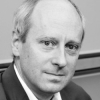Michael Sandel

Michael Sandel
Michael J. Sandelis an American political philosopher and a professor at Harvard University. He is best known for the Harvard course "Justice" and for his critique of John Rawls' A Theory of Justice in his first book, Liberalism and the Limits of Justice. He was elected a Fellow of the American Academy of Arts and Sciences in 2002...
NationalityAmerican
ProfessionPhilosopher
Date of Birth5 March 1953
CountryUnited States of America
child create depriving dollar expectation markets money pay risk run schools value
If you pay a child a dollar to read a book, as some schools have tried, you not only create an expectation that reading makes you money, you also run the risk of depriving the child for ever of the value of it. Markets are not innocent.
engage practice responsibility tries
The responsibility of political philosophy that tries to engage with practice is to be clear, or at least accessible.
beyond fortunate life money
I am fortunate to have enough money not to have to worry about the necessities of life. Beyond that, I try to think about money as little as possible.
jewish-tradition views catholic
It is true that the Jewish tradition emphasizes the moral mandate to save life. It also has a different position from the Catholic Church on the moral status of the embryo. It has a more developmental view of when human life, in the sense of personhood, begins than does the Catholic Church.
teaching jewish-tradition childhood
I have a broad but not an expert or scholarly background in the Jewish tradition. I've tried to learn what I can from childhood, but I am not an expert on Jewish teachings.
pregnancy eggs trying
In natural pregnancy, more than half of fertilized eggs fail to implant or are otherwise lost. Should we regard that as an instance of infant mortality? And if so, why are we not mounting ambitious public health campaigns to try to save and rescue all of the fertilized eggs that are lost in natural pregnancy? We would need a public health campaign of massive proportions if there really were over a fifty percent rate of infant mortality.
religious teaching thinking
I do think it is very important that the religious communities do try to bring their teachings and their insights to bear on the stem cell debate and on the debate about genetic engineering.
religious appreciation children
It's true that to speak of an ethic of giftedness, which is very much the ethic that I deploy in raising questions about designer children and genetic engineering - an appreciation of the giftedness of the child or the giftedness of life does have religious resonance, because a great many religious traditions emphasize the sense in which the good things in life are not all our own doing; they are gifts from God.
appreciation children grateful
I think people who want to use genetic technologies to gain a competitive edge for their children are engaging in a kind of overreaching that could really undermine our appreciation of children as gifts for which we should be grateful and, instead, to view them as products or instruments that are there to be molded and directed.
good-life children want
What I really want for my children is that they be loved and that they be happy and that they lead a good life.
exercise thinking medicine
There are really exercises in a kind of consumerist ethic that I think don't have the same moral weight as medicine or health.
exercise confusing dominion
Human beings are empowered to exercise dominion over nature and even to be participants in creation; and yet, at the same time, there are strictures against idolatry, which is a kind of overreaching and confusing human beings' role with God's.
religious views jewish-tradition
There are some religious traditions that view human beings as participants in creation. This is true of the Jewish tradition, from which I come.
sex thinking practice
I would include non-medical sex selection as one of those practices that I think is morally questionable and that can carry adverse social consequences.